New York Times (Doug Glanville authors op-ed)
Supreme Court Case Could Deliver a Win for School Choice Advocates
Chalkbeat (Professor Preston Green quoted)
Neag School Accolades: Winter 2020
Congratulations to our Neag School alumni, faculty, staff, and students on their continued accomplishments inside and outside the classroom. If you have an accolade to share, we want to hear from you. Please send any news items or story ideas to neag-communications@uconn.edu.
In addition to the Dean’s Office and Department achievements, explore this edition’s list for accolades from the following: Faculty/Staff; Alumni; Students; as well as In Memoriam.
Dean’s Office and Departments
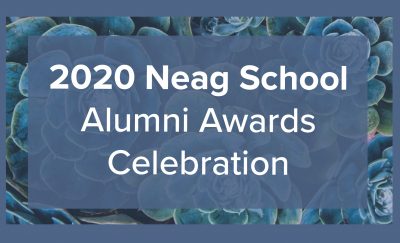
The Neag School and its Alumni Board are pleased to announce the winners of the 2020 Alumni Awards:
- Outstanding Early Career Professional — Jessica Stargardter ’16 (ED), ’17 MA
- Outstanding School Educator — Jeffrey Corbishley ’07 (ED), ’08 MA
- Outstanding School Administrator — Daniel J. Crispino ’15 6thYear
- Outstanding School Superintendent — Christine L. Carver ’91 (ED), ’97 MA, ’09 Ed.D.
- Outstanding Professional — Robin M. Schader ’01 Ph.D.
- Outstanding Higher Education Professional — Marcia A. B. Delcourt ’80 MA, ’88 Ph.D.
- Distinguished Alumna Award — Roberta (Bert) Wachtelhausen ’81 (ED)
In addition, elementary education students Jenna Karvelis and Ajane Santora-Fyne have been named recipients of the 2020 Alumni Board Scholarship; and Milagros Castillo-Montoya has been named the 2020 Perry A. Zirkel Distinguished Teaching Award honoree.
All awardees will be recognized at a celebration in March. Read more about the 2020 honorees and RSVP to the event.
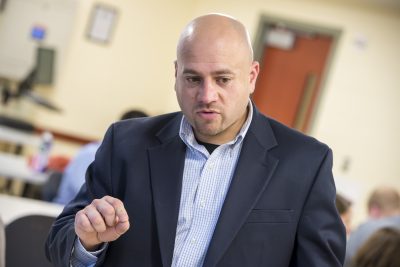
The Neag School this month welcomes Jason Irizarry as associate dean for academic affairs; Todd Campbell as head of the Department of Curriculum and Instruction; clinical assistant professors of curriculum and instruction Violet Jiménez Sims and Niralee Patel-Lye; and visiting assistant professor of educational psychology Qing Wang. Read more about these and other recent appointments.
The Neag School last month recognized Joseph Madaus as its 2019 Distinguished Scholar; Hannah Dostal as its 2019 Outstanding Early Career Scholar; and Taylor A. Koriakin as its 2019 Outstanding Student Researcher.
The Neag School has issued to education leaders nationwide its 2018-19 By the Numbers Report, offering a high-level glimpse into the School’s current rankings, research expenditures, global education efforts, scholarship support, and other highlights.
Several Neag School graduate students and faculty have been named 2019-20 Initiative on Campus Dialogues Fellows. This initiative brings together UConn students, staff, and faculty, as well as nonuniversity practitioners, to focus on dialogue and implementation. Sport management
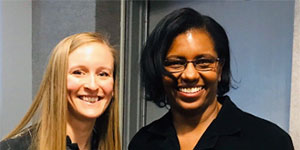
graduate students Charles Macaulay and Ajhanai Newton, with Laura Burton and Justin Evanovich, are Fellows with their project “Sports Talk: Creating Dialogical Classrooms for the Development of Future Sport Leaders;” Gerardo Blanco is a Fellow with the project “Promoting Cosmopolitanism through Global Dialogue in the Classroom”; and Patricia O’Rourke, a graduate student in curriculum and instruction, is a Fellow on the project “Continuing Project: Democratic Public Dialogue on Equity and Integration in Education.” Read more about Neag School’s ICD Fellows for 2019-20.
Department of Curriculum and Instruction (EDCI) and Teacher Education
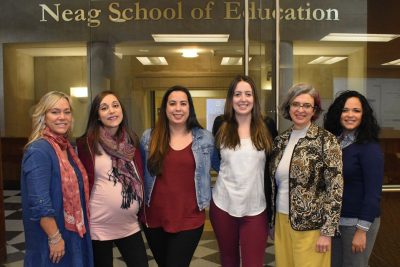
World Language Summit, an annual event in which world language teacher candidates and in-service teachers convene from partnership districts across Connecticut, was hosted at UConn Storrs in November. This year’s event featured Joseph Parodi-Brown from Marianopolis Preparatory Academy in Thompson, Conn., and focused on LGBTQ+ inclusion in French and Spanish classrooms. Check out photos from the event.
Neag School teacher education students spent the fall semester in London teaching, conducting research, and sightseeing. Check out photos from their trip.
Teachers and practitioners from across the state’s K-12 school districts, universities, and educational organizations gathered with representatives from the Connecticut State Department of Education, UConn, and the Council of Chief State School Officers on UConn’s Storrs campus in November for the Connecticut Teacher Table to connect on teacher education recruitment and retention challenges, with a specific focus on special education and bilingual shortage areas. Alumni Christopher Todd ’16 MA and David Alexandro ’17 MA, ’18 Ph.D. co-facilitated the daylong event, and Ann Traynor, director of advising and certification, shared insights on the Neag School’s special education program. Check out the photo album from the event.
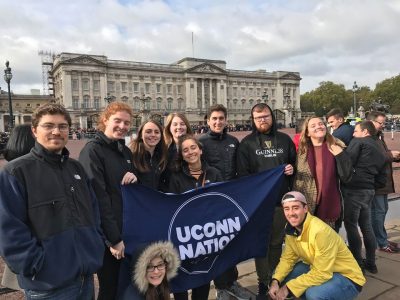
The Reading Language Arts Center last month hosted Allison Skerrett from the University of Texas at Austin, who spoke at the Russell Library in Middletown, Conn., on “Teaching Transnational Youth: Literacy: Education in a Changing World.”
The Natural Resources Conservation Academy (NRCA), for which Todd Campbell and David Moss are co-principal investigators, was recognized with the UConn Provost’s Award for Excellence in Community Engaged Scholarship at a ceremony on the Storrs campus in December. The award recognizes a collaborative and mutually-beneficial creative exchange of knowledge and resources between the University and the community to create conditions for the public good, culminating in sustainable change, and the dissemination of those activities. NRCA has received funding through the U.S. Department of Agriculture, National Science Foundation, and Advanced Informal STEM Learning, and is supported by curriculum and instruction doctoral students Laura Rodriguez ’16 (ED), ’17 MA, Jonathan Simmons, and Byung-Yeol Park.
Department of Educational Leadership (EDLR)
The Department of Educational Leadership hosted a reception in November at the Association for the Study of Higher Education annual meeting in Portland, Ore., for about 30 students, faculty, alumni, and friends.
This past fall, students in the Neag School’s Higher Education and Student Affairs program published several op-eds in the Hartford Courant on a variety of topics related to higher education administration. Check out their articles.
The Connecticut State Department of Education Talent Office convened more than 30 representatives from higher education and K-12 organizations to discuss leadership for equity as part of the UConn Principal Preparation Initiative (UPPI) project.
Department of Educational Psychology (EPSY)
Students in Neag School’s special education program gathered in December on the UConn Storrs campus to network and share ideas. Check out the photo album from the event.
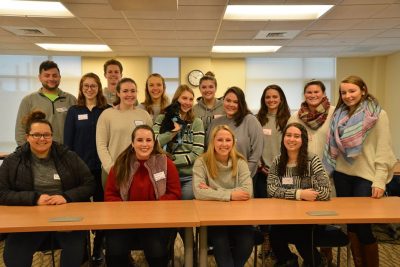
Faculty/Staff
Michele Back has been selected as a 2020 Northeast Conference on the Teaching of Foreign Languages Mead Leadership Fellow. This award provides support for the development of a project contributing to the foreign language teaching profession and advancing quality language instruction. Back plans to collaborate with teachers in the Northeast to develop target-language materials as open educational resources that support the recruitment of future K-12 world language educators. She also published “It Is a Village”: Translanguaging Pedagogies and Collective Responsibility in a Rural School District for the January issue of tesol Quarterly.
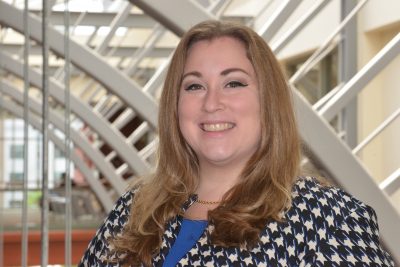
Rebecca Campbell-Montalvo, postdoctoral research associate in the Department of Curriculum and Instruction, is co-principal investigator on a new $500,000 federal research grant funded by the National Science Foundation. The project ultimately seeks to improve the inclusion and retention of students in the STEM fields.
Todd Campbell and David Moss, along with doctoral student Laura Rodriguez ’16 (ED), ’17 MA and other colleagues, co-presented “Assessing STEM Identities in Intergenerational Informal STEM Programming” at the 2020 International Conference of the Association for Science Teacher Education in San Antonio, Texas, this month.
Todd Campbell also co-presented “Engaging with 3D Interim Assessments Guided by Coherence and Attention to Equity” at the Connecticut Science Teachers Association conference in November in Southbury, Conn. In addition, Campbell co-published “Representing Scientific Activity: Affordances and Constraints of Central Design and Enactment Features of a Model-Based Inquiry Unit” for the November issue of School Sciences and Mathematics; “Equity-Focused K-12 Science Teacher Professional Development: A Review of the Literature 2001-2017” for the November issue of Journal of Science Teacher Education; and a book chapter titled “A Responsive Methodological Construct for Supporting Learners’ Developing Modeling Competence in Modeling-Based Learning Environments” in Towards a Competence-Based View on Models and Modeling in Science Education(Springer, 2019) with colleagues including TJ McKenna ’18 Ph.D. and doctoral student Laura Rodriguez ’16 (ED), ’17 MA.
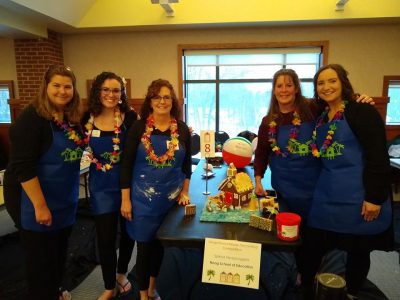
Milagros Castillo-Montoya, in addition to being named the 2020 Perry A. Zirkel Distinguished Teaching awardee, co-presented “’Why the Caged Bird Sings’ in the Academy: Reimagining What Counts as Knowledge in Higher Education” with Neag School alumni Truth Hunter ’14 MA and William Corey Moore ’20 MA at the Association for the Study of Higher Education national conference in Portland, Ore., in November.
Sandra Chafouleas co-published with Emily Iovino and Taylor Koriakin, doctoral students in educational psychology, “Caregivers of Children with Developmental Disabilities: Exploring Perceptions of Health-Promoting Self-Care” for the January issue of Journal of Developmental and Physical Disabilities. Chafouleas also co-published“Comparing Stakeholders’ Knowledge and Beliefs About Supporting Students’ Social, Emotional, and Behavioral Health in Schools” for the December issue of School Mental Health.
Casey Cobb received the Universities and Colleges Employers Association’s (UCEA) Service Award for serving two terms on the UCEA executive committee. He was recognized at UCEA’s annual convention in New Orleans in November, where he also presented at a session focused on leadership program coordinators.
Casey Cobb and Jason Irizarry co-published a chapter titled “Private Interests and the Common Good: Conflicting Priorities in a School Choice World” in the Handbook on Promoting Social Justice in Education (Springer Link, 2019).
Danielle DeRosa and Milagros Castillo-Montoya received the UConn Center for Excellence in Teaching and Learning’s Fifth Annual Mini-Grant Competition for their project “Intergroup Dialogue Graduate Training Practicum.”
Jennifer Freeman co-published, with Allison Lombardi, doctoral student Anthony Gambino, and alumna Laura Kern ’11 MA, ’17 Ph.D.,“Assessing the Relationship Between the Positive Behavior Interventions and Supports Framework and Student Outcomes in High Schools” for the November issue of The Journal of At-Risk Issues.
Elizabeth Howard is senior advisor on a new two-year study of dual-language charter schools in New Mexico.
Doug Kaufman wrote a review of Teaching Outside the Box: Beyond the Deficit Driven School Reforms (Information Age, 2018) for Teachers College Record in November.
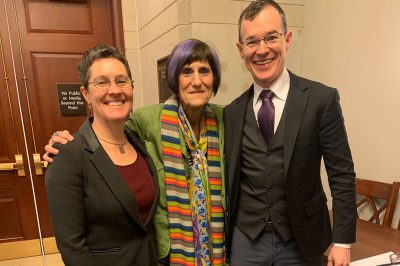
Devin Kearns co-presented “The Science of Dyslexia and Implications for Teacher Education” at the Connecticut Dyslexia Task Force in November in Hartford, Conn. The task force was established in 2019 by the Connecticut General Assembly to analyze and make recommendations on the implementation of the laws governing dyslexia instruction and training. In addition, Kearns and Jennifer Freeman represented the Neag School this month in Washington, D.C., as part of the 2020 Higher Education Consortium for Special Education Winter Summit, where they met U.S. Rep. Rosa DeLauro.
Craig H. Kennedy co-published “Preventing Challenging Behaviors in People with Neurodevelopmental Disabilities” for the December issue of Current Developmental Disorders Reports and co-published “Functional Analysis and Intervention of Perservative Speech in Students With High-Functioning Autism and Related Neurodevelopmental Disabilities” for the December issue of Journal of Applied Behavior Analysis.
Tamika La Salle co-published with doctoral student Jesslynn Rocha Neves and other colleagues “Racial Mismatch Among Minoritized Students and White Teachers: Implications and Recommendations for Moving Forward” for the October issue of Journal of Educational and Psychological Consultation.
Allison Lombardi co-presented at the Council for Exceptional Children’s Connecticut Chapter in Cromwell, Conn., in December. She also was featured in a “Transitions Talks” video titled “Strategies to Increase College and Career Readiness for all Students Through Multi-Tiered Systems of Support” shared by the Institute for Community Inclusion Media.
Glenn Mitoma hosted “Dialogue on Race and Community” through the Thomas J. Dodd Research Center. The event, co-moderated by Dominique Battle-Lawson, was held at UConn Storrs in November.
Jennie McGarry’s 2019 Earle F. Zeigler Award address was published in the January issue of the Journal of Sport Management.
Kenny Nienhusser co-presented at the Association for the Study of Higher Education (ASHE) national conference in Portland, Ore., in November. He also co-chaired a meeting during the conference in his role as co-chair of the ASHE Presidential Commission on Undocumented Immigrants. This month, he co-published with doctoral student Jillian Ives “Examining an Urban District’s College-Going Culture: The Role of Magnet School Designation” in The Urban Review.
Joseph S. Renzulli and Sally Reis co-published “George Betts: Scholar, Leader, and Advocate for the Social and Emotional Development of Gifted and Talented Students” for the October issue of Gifted Child Quarterly. Renzulli also wrote an op-ed titled “What We’re Getting Wrong About Gifted Education” for Education Week.
Lisa Sanetti co-published with Melissa Collier Meek ’08 (CLAS), ’04 MA, ’11 6th Year, ’13 Ph.D. “Identifying Critical Components of Classroom Management Implementation” for the December issue of School Psychology Review.
Del Siegle published “There’s an App for That, and I Made it” in the January issue of Gifted Child Today.
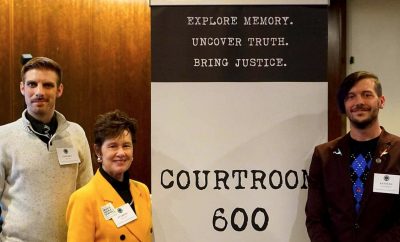
Stephen Slota, with UConn faculty Clarissa Ceglio and Ken Thompson, presented their interdisciplinary design endeavor, Courtroom 600, at the Education Games Expo, hosted by the Institute of Education Sciences and America’s Seed Fund, this month in Washington, D.C.
Mary Truxaw co-presented “Be Beautifully Uncomfortable: Inspiring Linguistically Responsive Teaching of Mathematics” at the annual meeting of the North American Chapter of the International Group for the Psychology of Mathematics Education at St. Louis, Mo., in October. She also co-presented “Know Your Terrain: A Cross-Case Study of Teachers’ Attempts Towards Equitable Learning” at the same conference.
Jennie Weiner co-presented on the Queen Rania Teacher Academy at the American Evaluation Association’s conference in Minneapolis, Minn., in November. She also was featured in a Twitter chat through the American Education Research Association’s Educational Change special interest group in November, and presented two sessions at the University Council for Educational Administration’s annual convention in November in New Orleans.Weiner will be a visiting associate professor at the Harvard Graduate School of Education in Fall 2020, where she will teach a course and support the redesign of its master’s program.
Sarah Woulfin co-published “How School Leaders Create the Conditions for the Effective Coaching” for the Association for Supervision and Curriculum Development’s (ASCD) November issue of ASCD Express. She alsoformalized a research-practice partnership with Bristol (Conn.) Public Schools to design and improve its system of instructional coaching, in addition to presenting a paper at University Council for Educational Administration’s annual convention in November in New Orleans.
Students
Doctoral students Chelsea Connery, Shannon Holder, Britney Jones, Sam Kamin, Alexandra Lamb, Jeremy Landa, Chad Lochmiller, and Patricia Virella presented at the University Council for Educational Administration’s annual convention in November in New Orleans.
This past fall, students in the Neag School’s Higher Education and Student Affairs program published several op-eds in the Hartford Courant on a variety of topics related to higher education administration. Check out their articles. 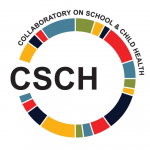
Katherine Connolly published a Collaboratory on School and Child Health brief titled “Supporting Gender Expansive Youth: Considerations for Healthcare Providers” this month.
Tamashi Hettiarachchi, a chemistry education student, was featured on the NGS Navigators podcast discussing practices for orchestrating task-based discussion and sharing resources she finds helpful in learning how to teach Next Generation Science Standards.
Kristi Kaeppel, a doctoral student in educational leadership, published a review of Mapping the Field of Adult and Continuing Education: Adult Learners (Stylus, 2017) for the December issue of Teachers College Record.
Josué López, a doctoral candidate in curriculum and instruction, published “(Re)Imagining Education for the Immortal Child: Why Theory in Education for Social Justice” for the November issue of Equity & Excellence in Education.
Susan Meabh Kelly, doctoral student in curriculum and instruction, co-presented “Resources to Facilitate Design and Development of Classroom NGSS Assessments” at the Connecticut Science Teachers Association Conference in Southbury, Conn., in November.
Ajhanai (AJ) Channel Inez Newton, a doctoral student in sport management, received the North American Society for the Sociology of Sport’s Gary Sailes Award in November. She also co-published “Being Black in a Sea of Color: AA Phenomenological Study Exploring Black Students’ Racial Experiences at AANAPISI and Emerging HSI” for the December issue of Journal Committed to Social Change on Race and Ethnicity.
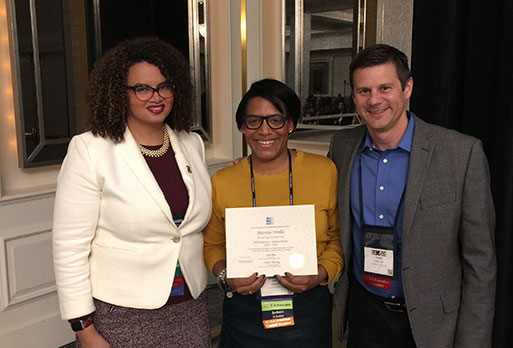
Byung-Yeol Park and Laura Rodriguez ’16 (ED), ’17 MA, doctoral students in curriculum and instruction, co-published “Using Models to Teach Science” with Todd Campbell for the November issue of The Science Teacher.
Alumni
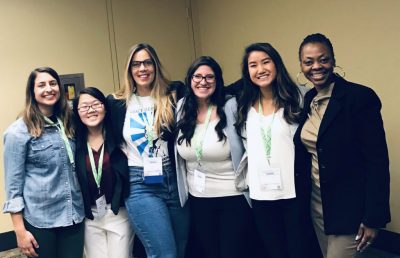
Neag School alums Jenna Stone ’18 (ED), ’19 MA; Kaylee Thurlow ’18 (ED), ’19 MA; and Lauren Kang ’18 (ED), ’19 MA; along with Danielle Filipiak, presented at the annual meeting for the National Council for the Teachers of English in Baltimore, Md., in November. In addition, Kathrine Grant, a current English education student, presented at a conference roundtable with nearly 100 preservice teachers from across the country.
Sarah Boyle ’15 MS is a remote traffic coordinator II at ESPN in Bristol, Conn., responsible for the content scheduling for SEC (Digital), Big South, Southern, America East, Atlantic Sun, Horizon, and Missouri Valley (Digital) conferences, among other special events/broadcasts, such as the College Softball World Series, First Take, and Golic & Wingo.
Amy Briesch ’05 MA, ’09 6th Year, ’09 Ph.D.; educational psychology doctoral students Dakota Cintron and Emily Auerbach ’15 MA, ’16 MA; Sandra Chafouleas; Betsy McCoach, and another colleague published “Comparing Stakeholders’ Knowledge and Beliefs About Supporting Students’ Social, Emotional, and Behavioral Health in Schools” for the December issue of School Mental Health.
Miguel Colon ’19 MS is associate director for Community Outreach Programs, Services, and Initiatives at UConn Storrs.
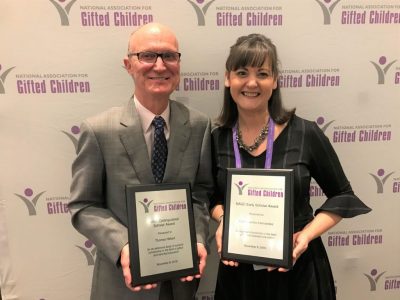
Thomas Hébert ’81 MA, ’90 6th Year, ’93 Ph.D. and Karen Rambo-Hernandez ’11 Ph.D. received the top two research awards at the National Association for Gifted Children’s (NAGC) annual conference in Albuquerque, N.M., in November. Hebe’rt received the NAGC Distinguished Scholar Award, and Rambo-Hernandez received the NAGC Early Scholar Award.
Ryan Holland ’19 (ED) is director of women’s hockey operations for Princeton University in Princeton, N.J.
Jen Maitland Hyde ’05 (ED) is the program director for Back on my Feet in Boston. The national organization operates in 13 major cities across the U.S., combating homelessness through the power of running, community support, and essential employment and housing resources.
Glynn Johnson ’18 (ED) is a marketing coordinator at ESPN in Bristol, Conn.
Rhea Klein ’95 Ph.D. was appointed to the Bolton (Conn.) Board of Education. Kleinis a former public school teacher, administrator, and educational consultant.
Kellie-Marie Vallieres ’92 (BUS), ’05 MA, ’08 Ph.D., a past Neag School Alumni Award recipient, is a member of Gov. Lamont’s Workforce Council.
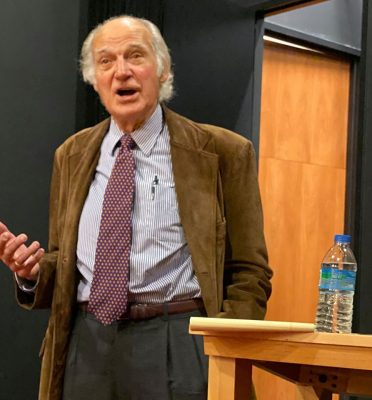
Stephen J. Nelson ’96 Ph.D., a professor of education and educational leadership at Bridgewater State University and senior scholar in the Leadership Alliance at Brown University, visited Storrs in November to talk about his new book, John G. Kemeny and Dartmouth College the Man, the Times, and the College Presidency (Rowman & Littlefield, 2019).
Jim Penders ’94 (CLAS),’98 MA, head coach for UConn Baseball, is featured in a UConn Today video, delivering a message about gratitude and commitment to students.
Anthony “Tony” J. Pulino ’69 (ED), who competed at UConn in track and cross-country from 1965 to 1967, is to be inducted this month into the Middletown (Conn.) Sports Hall of Fame.
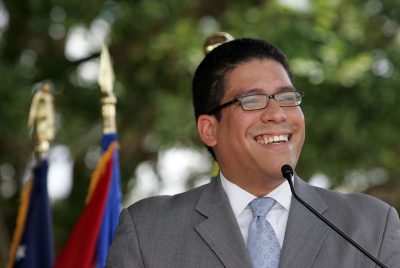
Kevin Roldan ’15 6th Year was appointed deputy education commissioner for the Rhode Island Department of Education. Roldan formerly spent three terms in the Connecticut legislature as a representative from Hartford, serving as a deputy majority leader and vice chairman of the budget-writing appropriations committee. Before that, Roland spent nine years working in Hartford (Conn.) Public Schools and had served as an advisor to three superintendents of schools and two mayors.
Vonetta Romea-Rivers ’14 MA, ’14 ELP is director of teaching and learning for Regional School (Conn.) District No. 11. She was previously director of performance, evaluation, and talent management for Manchester (Conn.) Public Schools.
Amanda Slavin ’08 (ED), ’09 MA, founder of brand consulting firm CatalystCreativ, has published The Seventh Level: Transform Your Business Through Meaningful Engagement with Your Customers and Employees (Lioncrest, 2019).
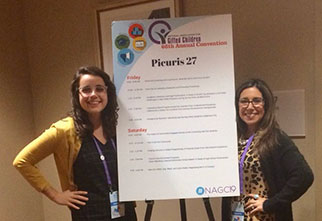
Donna (Cathey) Sodipo ’96 MA was appointed chief program officer for YMCA Hartford Region in Hartford, Conn. In that role, Sodipo will develop, implement, and evaluate YWCA Hartford Regions programs, increase capacity to meet the growing needs of the Greater Hartford community, and strengthen community partnerships. Before that, she served as senior vice president of education at Connecticut Public Learning, where she spearheaded the organization’s education strategy and learning initiatives to help advance the mission.
Jessica Stargardter ’16 (ED), ’17 MA, in addition to being named the Neag School Outstanding Early Career Professional, co-presented “Picuris 27” at the National Association for Gifted Children’s annual conference in Albuquerque, N.M., in November.
Lois Greene Stone ’55 (ED) has been nominated for a prestigious Pushcart Prize in writing. Last year she was a Best of the Net nominee for a personal narrative and was the featured writer of the month in Westward Quarterly. A writer and poet, Stone has been syndicated worldwide. Collections of her items, photos, and memorabilia are in major museums, including 12 different divisions of The Smithsonian. Married since 1956 to Dr. Gerald E. Stone, she has 15 grandchildren and eight great-grandchildren.
In Memoriam
Bonnie L. Bauler ’68
Welles T. Brandriff ’62
Phyllis V. Caputo ’87
Carol S. Carter ’68
Tami (Devine) Fagan’06
Mary M. Foye ’89
Elizabeth A. Gallichio ’59
William S. Israel ’49
Carol M. MacLenathen ’73
Kathryn C. Merriam ’84
Joseph J. Narotsky’72
Ralph A. Paparella ’68
Ronald D. Paullo ’66
Philip A. Pelosi ’72
Joseph J. Russo ’54
Benjamin W. Ruggles ’81
Anthony J. Strazzo Jr. ’56
Spring 2020 Neag School Faculty and Staff Appointments

This month, the Neag School of Education announces new appointments to its leadership, welcomes three new faculty members, and also announces staff updates in the Dean’s Office.
Jason Irizarry Named Associate Dean for Academic Affairs
Jason Irizarry, associate professor in curriculum and instruction, has been named the Neag School’s associate dean for academic affairs. Irizarry, who also serves as faculty associate at UConn’s El Instituto: Institute for Latina/o, Caribbean, and Latin American Studies, has been at the Neag School since 2016. Read more about Irizarry’s appointment to the dean’s leadership team.
Todd Campbell Named Head of Department of Curriculum and Instruction
Professor Todd Campbell has been named the head of the Department of Curriculum and Instruction. Campbell, who arrived at the Neag School in 2013, was one of 17 new faculty members recruited to the Neag School as part of the University of Connecticut’s hiring plan. Read more about Campbell’s appointment.
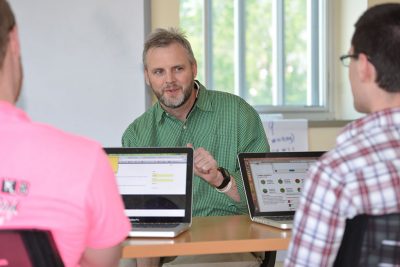
“I look forward to working with and supporting them both,” says Dean Gladis Kersaint.
New Arrivals in Curriculum and Instruction
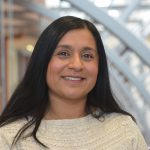
Niralee K. Patel-Lye joins the Department of Curriculum and Instruction as a clinical assistant professor in the teacher preparation program. Most recently serving at Connecticut College in a number of roles, including as the assessment coordinator and certification officer, Patel-Lye has also taught coursework at Mitchell College, the University of Bridgeport, and Post University. She earned her Ed.D. in educational leadership from Southern Connecticut State University in 2013. Patel-Lye’s research interests include teacher preparation, urban education, and social justice.
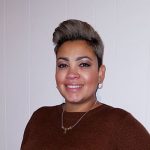
Violet Jiménez Sims arrives as a clinical assistant professor in curriculum and instruction as well. Jiménez Sims has previously served as a school administrator for Norwalk (Conn.) Public Schools and the Capitol Region Education Council (CREC), and as a teacher in Manchester (Conn.) and New Britain (Conn.). She earned her Ed.D. from the University of Bridgeport in 2018, and has a 6th year in curriculum and instruction and a master’s degree in higher education and student affairs from the Neag School. Her research interests include culturally and linguistically diverse pedagogy, professional development, and multicultural studies.
Visiting Assistant Professor in Educational Psychology
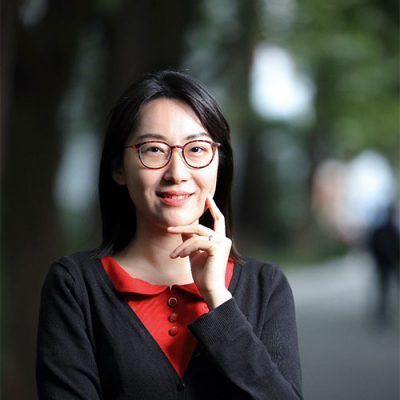
Qing Wang joins the Department of Educational Psychology as a visiting assistant professor. She most recently served as an associate professor in educational psychology at East China Normal University’s School of Psychology and Cognitive Science. Wang is also a Chartered Psychologist with the British Psychological Society and a Chartered Coaching Psychologist. She earned her Ph.D. in educational psychology at the University of Bristol. This spring, she will be teaching Theories of Learning, Cognition, and Instruction (EPSY 5530) for graduate students and Educational Psychology (EPSY 3010) for undergraduates. Her research interests involve developing positive learning dispositions and enhancing well-being through positive psychology, narrative, and mindfulness-based approaches.
Dean’s Office Staff
Staff additions to the Neag School this month include two new members of the Dean’s Office: Marcy Jarzabek, named director of development for the Neag School, effective Jan. 13, and Emily Murray, named director of alumni relations, effective Jan. 27. In addition, Dominique Battle-Lawson was promoted to assistant director, student support services, in December, and Connor O’Leary joined as a financial assistant I in October.
Jason Irizarry Appointed Associate Dean for Academic Affairs

Jason Irizarry, associate professor of curriculum and instruction, has been named the Neag School associate dean for academic affairs. He takes over this month for Joseph Madaus, who is resuming his faculty role to focus on recent research grants, including one focused on supporting academically talented students on the autism spectrum.
Irizarry previously served as the director of urban education at the University of Massachusetts from 2013 to 2016, where he was responsible for building a stronger partnership between the university and schools in Springfield and Holyoke, Massachusetts. The position provided the opportunity for him to work across departments through a school-wide initiative he led, known as the Urban Education Institute, while also working closely with faculty and the dean’s council, setting up research projects in the local schools.
“It gave me a glimpse into administration, and it piqued my interest,” he says.
Prior to that, he had been a faculty member at the Neag School, worked with Teachers for a New Era project, and served as a faculty associate in El Instituto: Institute for Latina/a, Caribbean and Latin American Studies.
A New Path
Irizarry says he has enjoyed his role as a faculty member, but was looking for ways to increase his impact beyond the schools and communities where he located his field-based projects.
“In this new role, I see this as a great opportunity to help other people do their work bigger and better, and help move the School forward, instead of thinking about how to solely move my work forward,” he says. “When the dean asked me to consider becoming the Associate Dean for Academic Affairs it seemed like a great opportunity at the perfect time.”
“I’m excited about helping folks move their work forward, especially to advance programs that address the needs of communities that have been underserved.”
— Jason Irizarry, Associate Dean for Academic Affairs
His interest in supporting existing academic programs and championing new initiatives, Irizarry notes, are informed significantly by his experiences as a Latino first-generation college student. It wasn’t until relatively recently that he fully embraced the idea of becoming an administrator in higher education. However, he believes his time on the faculty, coupled with experiences leading the urban education institute as well as serving as the director of a minority teacher recruitment program earlier in his career put him in a great position to make a valuable contribution to the Neag School of Education in his new role as associate dean.
“In this position, one has a broader view of all the programs across the Neag School, not just in one department,” he says. “I’m excited about helping folks move their work forward, especially to advance programs that address the needs of communities that have been underserved.”
His goal is to build on the School’s existing strengths, which he cites as the wonderful, students, faculty and staff that make up the Neag School. “There are folks here already doing amazing work; I hope to systematically bring them together so that we can maximize our impact.”
Connecting Research With Academics
Irizarry’s research interests include urban teacher recruitment, preparation, and retention, with an emphasis on increasing the number of teachers of color, culturally responsive pedagogy, youth participatory action research, and Latinx students in U.S. schools.
While still active on projects, including currently co-authoring a chapter for the Handbook on Latino Education and working on a book proposal, Irizarry will be supporting academic programs across the School. And although not a focus of his administrative position, research, he acknowledges, permeates everything that the faculty do.
“If I’m supporting academic programs, they are informed by research,” Irizarry says. “I see them as inextricably linked.”
Irizarry also understands the commitment to race and diversity at the Neag School and across the University, serving as a member of UConn’s chief diversity officer search committee.
“Dean Kersaint has a strong commitment to these issues, along with President Katsouleas,” he says. “Being on a team where those commitments inform our work is inspiring. I’m hoping to be able to lend my expertise to those initiatives and feel fortunate to be able to contribute to the conversation and move that forward.”
Acknowledging Dean Kersaint, Joseph Madaus, and other faculty and staff for their counsel and mentoring as he joins the dean’s leadership team, Irizarry says, “People want you to succeed here. There is a genuine feeling that the rising tide raises all ships.”
Todd Campbell Named Head of Curriculum and Instruction Department
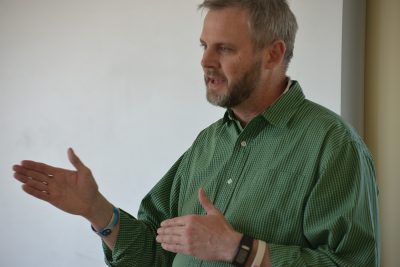
Professor Todd Campbell has been named head of the Department of Curriculum and Instruction, effective Jan. 1. He steps in following Suzanne Wilson’s return to faculty to focus on her role as Neag Endowed Professor.
Campbell, who arrived at the Neag School in 2013 from the University of Massachusetts at Dartmouth, was one of 17 new faculty members recruited to the Neag School as part of the University of Connecticut’s hiring plan.
“I see this new role as an opportunity for growth for me,” he says. “More importantly, this is something I see as service to the students and the department, in addition to leading the department.”
Campbell was recognized by UConn’s Center for Land Use Education and Research as a member of the 2019-20 class of affiliated faculty and is a co-principal investigator of a $2.25 million grant from the National Science Foundation in support of a project entitled “Redefining Public Engagement at the University of Connecticut: Studying the Impact of an Innovative STEM Service Learning Model on the University Community.”
“This is something I see as service to the students and the department, in addition to leading the department.”
— Todd Campbell,
Department Head, Curriculum and Instruction
Focusing on science education at the university level for the past 15 years, Campbell started his professional career teaching a variety of science subjects at the secondary level in Iowa. Serving in editor and guest editor posts at numerous science education peer-reviewed journals, Campbell also has been active with regional and national science organizations, has published more than 75 research articles, and given upwards of 110 conference presentations nationally.
Campbell’s Vision
Having gained some insights into the research activity of Neag School faculty as a recent member of the PTR (promotion, tenure, retention) committee, Campbell says that “getting the chance to look deeply at some of their materials is just amazing. … I look forward to seeing their work at a more comprehensive level.”
He says he plans to step back and look at the cohesiveness of the work and opportunities that exist for collaboration. Campbell says he admired Wilson for her ability to do that and sees her as a mentor.
In preparing for the role, Campbell says he has been reflecting on attributes of department chairs he has served along the way.
“The leaders who have been most impactful have believed in me,” he says. “They’ve helped find ways to support my research efforts through finding enough resources. If I could do that for others, then that would be ideal. My focus is helping the faculty be successful through their scholarly work, along with looking at the programs to ensure they are sustainable and the best they can be.”
Campbell earned his Ph.D. in science education, his master of arts in teaching, and his bachelor of arts degree in chemistry, all from the University of Iowa.
Ph.D. Candidates Integrate Open Dialogue Into Sport Management Courses
Thanks to the Initiative on Campus Dialogues (ICD) Fellowship Program at UConn, members of the Neag School community are engaging in projects focused on expanding productive dialogue within and beyond the University community.
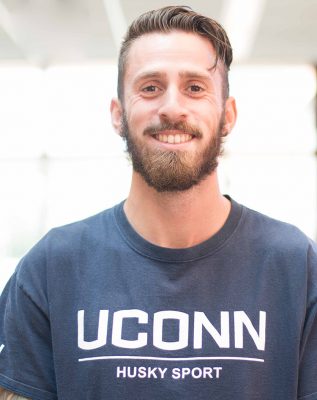
Charles Macaulay and Ajhanai Newton, third-year Ph.D. students in the Neag School of Education’s Learning, Leadership, and Educational Policy (LLEP) Program, were two individuals selected this past fall as ICD Fellows for the 2019-20 academic year.
The program, a University-wide partnership now in its third year, seeks to bring together humanities research and community engagement. Sponsors of the program include the Thomas J. Dodd Research Center, Office of Public Engagement, Humanities Institute, and numerous other academic, service, and administrative units from across UConn.
As part of this yearlong learning experience, Macaulay and Newton are meeting with other ICD Fellowship teams throughout the academic year to discuss and apply dialogue and deliberation tools to specific community problems.
Reimagining Coursework
Macaulay and Newton’s project seeks to reconceptualize two sport management courses at the Neag School into spaces where diverse topics can be discussed and difficult conversations can be had. They titled the project “Sport Talk: Creating Dialogical Classrooms for the Development of Future Sport Leaders.” With guidance from Neag School faculty Laura Burton and Justin Evanovich, they say they hope to transform these classes into places where students can challenge normalized practices within the sports industry.
“The overall goal of the ICD Fellowship is to engage educators on how to create dialogue in the classroom, from our teaching practices to the curriculum that we present.”
— Charles Macaulay, 2019-20 ICD Fellow
“It’s the topics that are very social-political and sociocultural that we see individuals struggle to have civil dialogue around,” says Newton. “When we read the grant, all these different sport topics were happening to where it was like ‘OK, this is where we fit.’”
Macaulay and Newton will each be lead instructors in sport management courses this spring, an opportunity that Newton says is rare among typical doctoral programs. Macaulay will teach Sport Facility and Event Management, and Newton will teach Sport Management. The ICD Fellowship Program allows the two to reimagine the structure of these courses to create a dialogue-centered curriculum.
“We had been talking for a while about how we can put our mark on these classes and enhance what we are teaching, as well as bring a critical lens to discuss some of the larger social issues that are happening throughout our society,” says Macaulay.
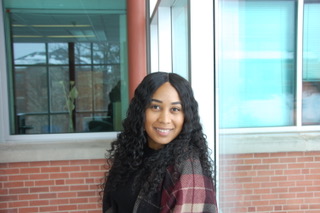
Macaulay says he will be discussing social issues such as workplace diversity and polarization so that students are able to consider and understand different perspectives to work successfully in teams in any work environment.
“You don’t always get to choose who you work with, and being able to understand individuals who hold different beliefs, values, and lifestyles will make students more flexible and stronger leaders,” he says.
When the two learned of the ICD Fellowship opportunity, they both believed it aligned perfectly with the work they were trying to do at the Neag School.
“The grant itself is meant to build curriculum while centering dialogue in the classroom, and we wanted to see what we could learn from [the ICD Fellowship] community and what skills we could develop to take into our classrooms,” says Macaulay.
Dialogue is essential in the classroom, say Macaulay and Newton, because it allows students to respond to one another in a manner that evokes curiosity and questioning, rather than combativeness.
To encourage dialogue in his classroom, Macaulay says he will have students work together in teams to critically access and remedy a workplace issue each week. The teamwork will force students to articulate their ideas and challenge one another in order to reach a sound decision.
“There are no right answers on how to handle these issues, but there are multiple ways to handle them,” says Macaulay.
Each Fellowship team may receive up to $5,000 that can be used for travel, honoraria, materials, and publicity.
Intersection of Sport and Education
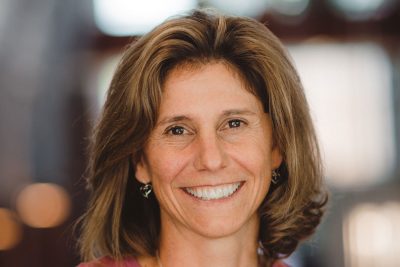
Neither Macaulay nor Newton initially pictured themselves pursuing education as a career. They each had studied sociology as undergraduate students and found interest in courses on African American student-athletes and the intersection of race and sport.
At the University of British Columbia, Macaulay wrote his senior thesis on how greater investment in college athletic programs yields a higher enrollment of black student-athletes. It was through that research that Macaulay met former Neag School professor Joseph Cooper, who invited him to UConn to earn his Ph.D. in LLEP.
Newton, a student-athlete during her undergraduate career at Colorado State University, had wanted to work in collegiate athletics or conduct research in the field. After receiving her master’s in educational leadership and policy from the University of Texas at Austin, Newton was drawn to the Neag School for her doctoral degree.
“I noticed something unique about UConn’s program, where it situates how education and sport intersect,” she says.
Creating Dialogue in the Classroom
The ICD Fellows spent the fall semester discussing how dialogue can be best fostered in the classroom. Teams met every four to five weeks to share their project goals and put dialogue into practice through scenario and facilitation workshops.
“We are thinking about what dialogue is, and how does that differ from classroom discussion,” says Newton.
From Newton’s perspective, dialogue is the process of engaging and questioning topics and peers with curiosity. Unlike traditional classroom discussion, she says dialogue is a process of being comfortable with having one’s thoughts and opinions questioned, while grappling with opposing viewpoints.
The spring semester will center on curriculum building. Macaulay and Newton say they are determining how to integrate dialogue into the curriculum, but also design curriculum that is built on dialogue. Over the winter break, they have worked to adjust their syllabi for the spring courses to include material that encourages dialogue.
“I want to say that I was aligned with continuing to … position our program to be known for being critical of sport and how we consume sport.”
— Ajhanai Newton, 2019-20 ICD Fellow
They both plan to hold weekly dialogue sessions in their classrooms, offering students a space to share their ideas, hear different perspectives, and build new ideas with their peers. Students will deconstruct workplace issues and situations, and propose solutions to those problems.
“The overall goal of the ICD Fellowship is to engage educators on how to create dialogue in the classroom, from our teaching practices to the curriculum that we present,” says Macaulay.
The grant ends in May, and Newton says she and Macaulay plan to have an end-of-year conversation with the broader sport management community on the accomplishments and challenges they faced through the ICD Fellowship.
Beyond the Fellowship
Macaulay says he hopes to create a dialogue-centered structure in the Sport Facility and Event Management course that can be handed down to the next set of Ph.D. students or faculty members, so that future graduates are better prepared in their transition from the University to the sport industry.
“Our alumni are going to experience and interact with individuals of different identities, of different backgrounds, of different political beliefs, and yet they are still going to have to work with them,” he says. “If they are engaging in difficult conversations but then also acknowledging that we can gain something from those difficult conversations, they are going to be more prepared to enter into the workforce and be successful to lead those conversations.”
Newton says her goal upon completing the ICD Fellowship is to continue to develop the Neag School’s sport management program to be seen as one that situates how social justice and sport intersect.
In the years ahead, she says, “I want to say that I was aligned with continuing to … position our program to be known for being critical of sport and how we consume sport. I think that … is what drew me to the program, and so continuing to be a part of that legacy is really important for me.”
Additional Neag School ICD Fellows
The ICD Fellowship was awarded to two additional members of the Neag School for 2019-20:
Patricia O’Rourke, a doctoral student in curriculum and instruction, is a Fellow on “Continuing Project: Democratic Public Dialogue on Equity and Integration in Education.”
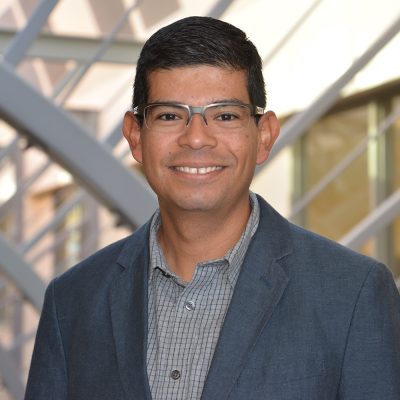
O’Rourke has been actively engaged in community dialogue centered around school diversity and integration for more than three years.
She is joined by two school integration leaders, Gina Chirichigno and Attorney Cheryl A. Sharp. Their project aims to expand support for democratic public dialogue and effective participatory policymaking in the public education sphere. Together, they hope to bridge the worlds of academic scholarship and community engagement in a “research and practice” collaboration.
Gerardo Blanco, associate professor of higher education and student affairs at the Neag School, is also a Fellow, with political science Ph.D. candidate Sercan Canbolat, on “Promoting Cosmopolitanism Through Global Dialogue in the Classroom.” This project seeks to incorporate strategies for dialogue into curriculum associated with Global House, a UConn Learning Community that brings together U.S. and international students.
Learn more about the ICD Fellowship Program and this year’s Fellows.
Neag School Announces Recipients of 2020 Alumni Board Scholarship
Jenna Karvelis ’20 (ED), ’21 MA and Ajane Santora-Fyne ’20 (ED), ’21 MA, both students in the Neag School Integrated Bachelor’s/Master’s Program, have been named the recipients of the Neag School of Education Alumni Board Scholarship for 2020.
The Alumni Board Scholarship provides a $1,000 award annually to students enrolled in a Neag School master’s, doctorate, or sixth-year program who have proven academic excellence or demonstrated financial need. The scholarship is intended to invest in the education and experience of Neag School students.
“The Neag School Alumni Board is excited to be able to continue supporting students who are currently pursuing the advance of their educational degrees,”says Neag School Alumni Board President Kathryn Lenehan ’10 (ED), ’11 MA, ’19 6th Year. “As a Board, we spend much of our time talking about how we can give back to a place that we have all benefited from so much. We hope that this scholarship continues to encourage those considering their next level of education in taking that step.”
“Education provides hope and a way out of this broken cycle. … Too often, kids give up and accept the bad hand life has dealt them. I want to show them what can happen when they don’t fold.”
— Jenna Karvelis,
2020 Alumni Board Scholarship Recipient
Refusing to Give Up
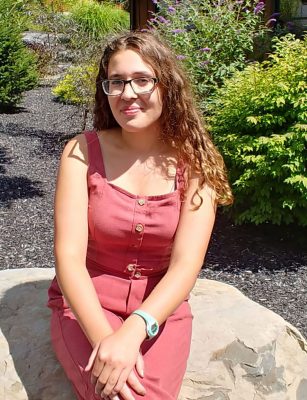
A resident assistant at UConn since 2018, Karvelis facilitates community activities, promotes dialogue, mediates conflict, and provides campus resources for residents.
Serving in this role has confirmed for Karvelis her intention to pursue a path of helping others while also spurring her interest in research about learning communities. In contributing to research efforts at an annual conference for the past three years, including conducting research through UConn’s Office of Institutional Equity, Kervelis says she has learned more about working with other students and has analyzed topics for supervisors that help impact decision making on UConn policies.
With concentrations in history and elementary education, Karvelis has also been a leader across campus, including being a First-Year Experience mentor; vice president and co-founder of El Concilio Club; vice president of the Bridge Church club; and vice president for InterVarsity Christian Fellowship. She has also been involved with UConn Future Educators, and has participated with UConn spring break trips, including one to Washington, D.C., where she learned about homelessness, poverty, and political action, and another trip to Baton Rouge, La., where she helped rebuild homes affected by flooding.
In her application for the Alumni Board Scholarship, Kervelis described her home as “broken.”
“Back home,” she wrote, “my mom, sisters, and I cram into a tiny apartment on a street where people have been shot, and drug deals happen. … Growing up wasn’t easy, and neither is life now.”
Yet, she added, “Education provides hope and a way out of this broken cycle. … Too often, kids give up and accept the bad hand life has dealt them. I want to show them what can happen when they don’t fold.”
“I am so grateful to be chosen as the recipient of this scholarship,” she says. “This money will help fund my master’s degree, completing which is one of the last steps in my journey to becoming a teacher. I can put my all into learning to be the best teacher, which is what my future students deserve.”
Inspired by Other Educators
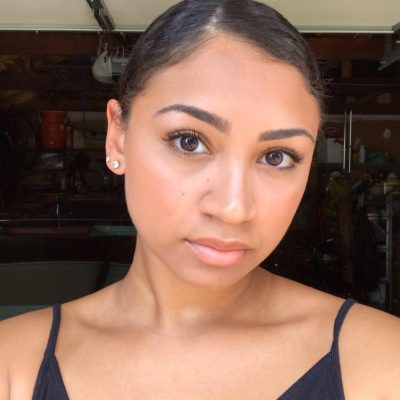
“There is not just one factor or experience that led me to choose a career in education,” Santora-Fyne shared in her scholarship essay. Family members, including an aunt who has been a special education teacher for 25 years, as well as educators Santora-Fyne has seen featured in the media who have dedicated their time and resources to help students in need, are among her sources of motivation, she says.
Such inspirational figures, Santora-Fyne wrote, “taught me to strive to fill my future classroom with love, trust, and support so that each of my students can positively impact their future in a positive way, and defy all the odds that society may place on them or that they face at home.”
Santora-Fyne struggled through her first year at UConn, working part time as a freshman to pay off her loans. By sophomore year, however, she says she was “able to focus on the big picture: school,” and was ultimately accepted to the IB/M program. Scholarships, she says, remain the “only reason” she has been able to continue her education.
“It is my hope to enter a field in which one person can make positive difference in the lives of so many, year after year.”
— Ajane Santora-Fyne,
2020 Alumni Board Scholarship Recipient
Focused on English education with hopes of teaching middle-school students, Santora-Fyne says that coming from an underprivileged area has helped her develop “a strong desire to give back to the urban community. I … recognize the power that I will have as an educator to possibly lift up others who are not as fortunate as I was.”
Through her Neag School clinical practica at East Hartford Middle School and the Connecticut IB Academy, Santora-Fyne has observed classes and provided one-on-one support for students. She also has gained experience with youth as an after-school teacher at a learning center, summer camp counselor for children, and volunteer mentor for girls at an elementary school.
“Education is a gateway for people, especially students like myself, to realize their full potential,” Santora-Fyne says. “It is my hope to enter a field in which one person can make positive difference in the lives of so many, year after year.”
“As a first-generation student, I am honored to be awarded by the Alumni Board for this scholarship,” she says. “Thank you for your generosity and support, which has allowed me to be able to further my education.”
Jenna Karvelis and Ajane Santora-Fyne will be formally recognized at the 2020 Neag School Alumni Awards Celebration, taking place on the Storrs campus in March. Register online for the event at s.uconn.edu/NeagAlumni2020.** For more information on supporting students like these, visit s.uconn.edu/neaggiving.
** The 2020 Neag School Alumni Awards Celebration has been postponed until Fall 2020.
Related Stories:
Carver Earns ’Superintendent of the Year’ Award
Stamford Advocate (2020 Alumni Award recipient Christine Carver featured)
Neag School Alum Receives UConn Teaching Fellow Award
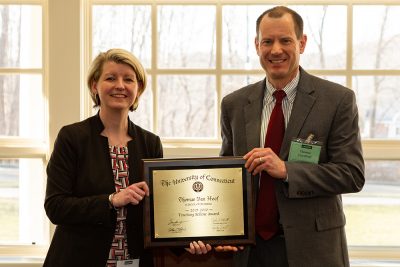
Neag School alumnus Thomas J. Van Hoof ’92 MD, ’96 MA associate professor at UConn’s schools of nursing and medicine, has been recognized by the Center for Excellence in Teaching and Learning (CETL) as one of two 2019-20 University Teaching Fellows.
The award, which honors full-time faculty who show a commitment to teaching, demonstrated knowledge of pedagogy, and an interest in fostering innovative teaching practices at the University, provides recipients with a stipend of $5,000. Awardees are nominated by deans and department heads, and a committee of former CETL teaching fellows determine the winners.
Van Hoof, who received his medical and psychiatric training from the University of Connecticut School of Medicine before earning a master’s degree in education from the Neag School in 1996 and completing an Ed.D. at Teachers College Columbia University in 2008, has served as a faculty member for 24 years in numerous educational roles at the schools of medicine and nursing.
Throughout his lengthy career in education, Van Hoof has worked to create a classroom that promotes effective student learning.
“It’s nice to receive recognition for something that you really enjoy doing,” says Van Hoof. “I feel inspired by it, and I think it has increased my enthusiasm for my role as an educator at UConn.”
“The educational system is an influential force that we should leverage for good purposes and outcomes.”
— Thomas J. Van Hoof ’92 MD, ’96 MA
Learning Science
Van Hoof’s fellowship work is centered around learning science, an emerging disciplinary field concerned with how the brain retrieves and retains information. He says the field offers educators and students a set of evidence-based strategies to enhance mastery and long-term memory.
As part of his fellowship, Van Hoof hosted two learning science workshops this past fall semester, one of which was an eight-week student workshop, involving mostly nursing and engineering students. Participants discussed how learning science can influence study and practice habits and adjusted their own study techniques to be consistent with the evidence of effectiveness. For example, Van Hoof says students practiced distributed study several days prior to an exam, allowing the brain multiple opportunities to process information in short, regular study periods.
The second workshop was for faculty and staff interested in discussing how teaching and advising practices can be altered to align with learning science evidence. Van Hoof says pre-tests, mock exams, and cumulative exams, rather than passive review, are effective practices for long-term memory retrieval.
“The hope was that if we are helping students to be more aware of ways that they can improve their study in practice, and we are helping faculty and staff become more aware of how to improve their teaching and advising, then that would be a powerful combination,” says Van Hoof.
Van Hoof plans to hold at least one workshop this spring, along with additional presentations around the science of learning in other schools.
From Physician to Educator
Although his parents both pursued careers in education, Van Hoof initially practiced psychiatry and was set on being a full-time physician until his passion for education surfaced. He worked directly in-patient care for six years and indirectly in the field for 18 years, primarily in Medicaid and Medicare quality improvement. When he enrolled in the master’s program at the Neag School, he hoped to gain an understanding about school systems in order to be better informed in the school mental health work he was involved in at the time.
Van Hoof says two former school of education faculty members, Mark Shibles and Patrick Mullarney, inspired him to consider a career in education rather than as a practicing physician.
“Both of these professors were clearly content experts, but more importantly, they were kind and encouraging,” says Van Hoof. “They understood the importance of process and context, in addition to content.”
Van Hoof has taken key lessons from his psychiatric background into his career as an educator, including the importance of relationships. He says education is a social process in which working with others is essential to many of the ways in which we learn, such as listening, speaking, and applying and reflecting on information. His psychiatry career also taught him how important context is for learning.
“We need to be sensitive to contextual variables, such as what and how we grade in our courses, or what incentives exist in the workplace, as these variables influence outcomes,” says Van Hoof. “The educational system is an influential force that we should leverage for good purposes and outcomes.”
Altering the Classroom
In his teaching philosophy statement to the CETL Teaching Fellow Awards Committee, Van Hoof noted the changes he has made to his teaching strategy over the past five years, which he drew from discussions with colleagues and interprofessional research. The changes include the use of pre-tests, which prepare the brain to learn; mock exams, which give students feedback on what they know; and phased assignments, which offers students a series of incremental and complementary steps to learning. He says the results from these assessments allow him to track student improvement and make adjustments to his teaching practices based on feedback. Van Hoof also began implementing interactive classroom activities and team-based projects to enhance student interest in the course material.
“We need to provide students with sensitive, but timely feedback to help them improve and encourage them to overcome barriers that we all face.”
“My hope is for people leaving any course or activity that I am involved in is that they will feel better about themselves as a learner and that they will be more proficient in learning and more receptive to opportunities for future learning,” he says.
“He is without a doubt one of the best instructors I have ever been fortunate enough to work with,” says Elizabeth Mayerson ’17 DNP, ’18 HPE Certificate, one of Van Hoof’s former students. “He has also been extremely supportive as I attempt to become an educator myself.”
Undergraduate nursing student Colleen Bradley took Van Hoof’s “Health Care and Delivery System” course in Fall 2017, followed by his one-credit university course on learning science strategies in Fall 2018. She praises Van Hoof for his commitment to improving students’ performance in his courses, as well as their other courses.
“It was clear that Professor Van Hoof was not simply drilling material into us with the hopes that we would remember and/or use it, nor teaching us something that he himself would never utilize,” says Bradley. “He was putting into practice the very same tools and methods for learning that he was encouraging us to use.”
A Look Ahead: Improving the Education System
Van Hoof says his impact on those in the early stages of their educational careers has been the most gratifying aspect of his work so far, and he hopes to continue to make improvements in the education system as he moves forward in his own role as an educator.
“Educators need feedback, and we need help in developing solutions to complex problems,” says Van Hoof. “We need to provide students with sensitive, but timely feedback to help them improve and encourage them to overcome barriers that we all face.”
When asked what advice he would give to future educators, Van Hoof says it is important to consider everything from the perspective of the learner. He makes real-time improvements in his classroom by having regular conversations with students to negotiate the curriculum.
“We can benefit by making adjustments, because every group is different,” says Van Hoof. “Each time we teach, even the same course, we should really be making changes in how we are interacting with a group to respond to how that group is unique.”
